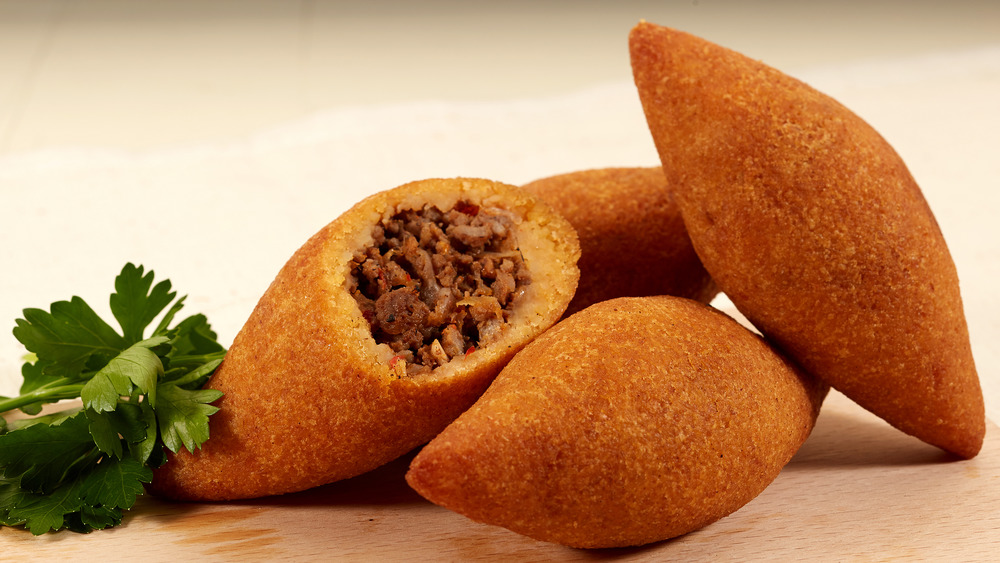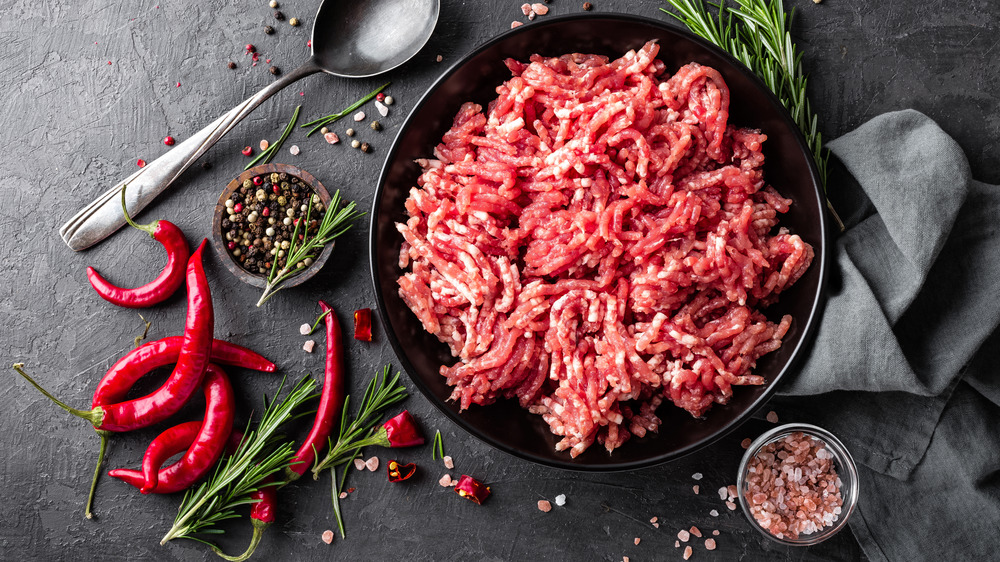What Are Kibbeh And How Do You Make Them?
If there is one big takeaway from Anthony Bourdain's legacy, it is that food has great potential in bringing people together, "helping us to understand and sympathize with one another's circumstances," as The Counter notes. Bourdain was always traveling and trying new things, so in the interest of following in his footsteps, if you haven't already, why not give kibbeh a try? The Mediterranean Dish explains that the savory snack's name is derived from the Arab word meaning "to form into a ball," a nod to its appetizer-sized shape. Aleppo's Kitchen provides a detailed history of the dish, which they say is typically made with cracked wheat (or bulgur) and ground meat.
When it comes to ingredients, Taste.com.au presents a solid variety of options to stuff into the bulgur dough, including onions and baharat (or seven spices) and suggesting "lean beef, goat, lamb, fish, or camel" for the ground meat. They also mention there is a vegetarian version that can be made with "spinach, pumpkin, [and] chickpea." However, according to StepFeed, kibbeh can really be made in any number of ways, depending on what spices or ingredients you have on hand and what your personal preferences may be.
Is kibbeh difficult to prepare?
As this recipe from The Spruce Eats notes, "although labor intensive, making kibbeh is not difficult." Steps include soaking your bulgur, making a dough, mixing the meat stuffing together, and then assembling and frying. The time spent stuffing kibbeh is important to Middle Eastern culture, as The Mediterranean Dish shares that it is an act many Middle Eastern women take very seriously and consider almost a rite of passage.
While kibbeh can be prepared and consumed raw, the USDA suggests opting for the cooked version as it is likely a safer choice. According to NPR, raw kibbeh is just as appetizing, and sometimes even preferred, overcooked — those they interviewed say it tastes like "heaven." On the flip side, MasterClass recently likened the taste of cooked kibbeh to that of meatloaf or meatballs, saying the actual flavor depends on the meat used and where it comes from, noting that different regions pepper the dish with different spices.
As either an appetizer or a main, the mouthwatering photos and positive reviews don't lie — it's no wonder Syria calls kibbeh its national dish (via Food Hopping)! So why not consider adding something new to your repertoire? If you're a meat-lover, it seems likely you'll love kibbeh as well.

